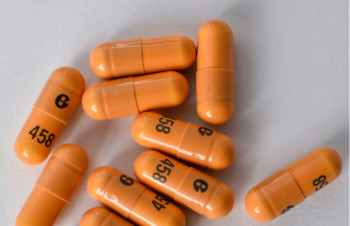Can You Drink Alcohol With NyQuil?
In our latest question and answer, the pharmacist discusses whether or not it is safe to drink alcohol with NyQuil.

Question
Is it okay and safe to drink alcohol with Nyquil? I just want to be safe.

Answered by Dr. Brian Staiger, PharmD
Medical Content Reviewed By HelloPharmacist
Staff
Last updated Jun 25, 2025
Key points
- In general, alcohol should not be combined with NyQuil as the risk of side effects increases and alcohol can worsen sleep quality.
Answer
In general, you should not drink alcohol while taking NyQuil for a few reasons. First and foremost, as NyQuil already has a sedative effect, there is the risk of increased side effects, including:
- Pronounced sedation
- Slurred speech
- Dizziness
- Increased heart rate
- Impaired thinking
Additionally, since I imagine you are taking NyQuil to help you sleep, it is important to know that alcohol can interrupt multiple phases of sleep, which could result in next-day grogginess.
Doesn't NyQuil Already Contain Alcohol?
Now, I want to point out that when discussing the interaction between NyQuil and alcohol, the fact that NyQuil actually already contains alcohol at a concentration of 10% isn't a major consideration here since it just isn't a substantial amount.
Again, NyQuil is 10% alcohol by volume, which is about the alcohol percent of wine (although this obviously can vary).
Since one dose of NyQuil is only 30 mL (two tablespoons), you aren't going to be consuming much alcohol...probably the amount you'd get by taking a sip of wine. We are more concerned with the interaction alcohol has with the drugs in NyQuil.
Alcohol - NyQuil Ingredient Interactions
NyQuil contains the following active ingredients:
- Acetaminophen
- Dextromethorphan
- Doxylamine
NyQuil Severe contains:
- Acetaminophen
- Dextromethorphan
- Doxylamine
- Phenylephrine
There is even an 'alcohol-free' version of NyQuil that contains:
- Acetaminophen
- Chlorpheniramine maleate
- Dextromethorphan
All of these NyQuil products contain acetaminophen, which is also the active ingredient in Tylenol.
There is a well-known interaction between acetaminophen and alcohol since both are metabolized in the liver. Too much of either can cause stress to your liver or even damage. In fact, acetaminophen overdoses account for over 50% of acute liver failure cases in the United States! While low doses of acetaminophen once in a while are safe, too much is dangerous and the combination of acetaminophen and alcohol only increases this risk.
Moving on to another ingredient in NyQuil products, dextromethorphan, combining that with alcohol can cause additive (i.e. amplified) sedation and drowsiness.
Perhaps the most concerning interaction here though are between alcohol and the antihistamine that NyQuil contains, doxylamine (the alcohol-free version contains chlorpheniramine, a similar antihistamine).
Doxylamine, the sedating ingredient in Nyquil, is classified as a first-generation antihistamine and is very similar to Benadryl (diphenhydramine). First-generation antihistamines are mild central nervous system depressants, one of the characteristics that makes them beneficial for sleep.
Alcohol, as many know, is also classified as a central nervous system depressant. It is recommended to avoid combinations of products that could have additive CNS depressant effects. CNS depression can cause a variety of side effects including:
- Slurred speech
- Staggering
- Impaired cognition
- Respiratory depression
Alcohol Itself Affects Sleep
Since your goal here is likely to sleep better, I want to spend just one moment further discussing how alcohol can negatively affect sleep.
Aside from the additive side effects of drinking alcohol with NyQuil, alcohol interferes will sleep quality, part of the reason most take Nyquil in the first place.
While alcohol can act as a sedative and can hasten the onset of sleep, it has known consequences on nighttime sleep quality and depresses respiration, sometimes inconspicuously. Studies have definitively shown that it decreases REM sleep, which has strongly been linked to feeling less rested in the morning. This often results in next-day impairment and a feeling of a lack of sleep.
How Long To Separate Them
The general rule of thumb is to alcohol around one hour for your body to metabolize 'one' drink. One drink is defined as:
- 2 ounces of regular beer (around 5% alcohol)
- 5 ounces of wine (around 10-12% alcohol)
- 1.5 ounces of distilled spirits (about 40% alcohol)
So, if you have 'one' drink, you should not consume NyQuil for at least an hour. Similarly, if you consume 'two' drinks, you should not consume NyQuil for at least two hours and so on.
NyQuil lasts around 4 to 6 hours per dose. Therefore, you should wait at least that amount of time after taking a dose before drinking alcohol.
Final Words
Thanks for reaching out to us and feel free to do so again.
-
 Dr. Brian Staiger, PharmD
Dr. Brian Staiger, PharmD
- 8252 views


